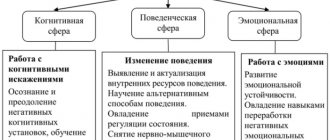Prevention of stress, How to cope with stress Irina Vasilyeva Properly applied methods of self-regulation will make you stronger in any circumstances. This alone may encourage many to study them. History is full of examples of how certain methods saved or improved life.
Many have read the famous detective stories of Agatha Christie, but few people know that the writer herself was fluent in these techniques. I’ll tell you just one case that proves her undoubted talent in dealing with stress.
One day, during an archaeological expedition in the deserts of Egypt, the car of Agatha and her companion, the famous English scientist Max Mallone, was sucked into the sand along with all the equipment. This trouble happened to them far from the caravan routes, so help was not expected soon.
While the desperate Max tried to do something, Agatha calmly lay down and fell asleep. This impressed Max so much that the next morning he proposed marriage to her.
Think about it, how many of us could be so calm when on the verge of death? Would you like to have such a strong character that no unpleasant event could affect your confidence and calm?
Natural ways
In fact, self-regulation is not originally a human invention. In nature or by observing domestic animals, we can note a fairly large number of ways to help relax or activate the vital forces of the body.
Watch cats, for example. There is a lot to learn from them. In their behavior you can see the simplest, but no less effective techniques.
Dream.
The most desired, most favorite method among many, many residents of modern megacities. Sleep has a truly magical effect. During sleep, the body recovers.
A well-rested person reacts differently to stressful situations than a sleep-deprived person.
It often happens that a person suffers not from the quality of sleep itself, but from “bad” disturbing dreams. Having seen something strange and difficult to explain in a dream, a person does not understand how to interpret what he saw. Uncertainty may make him feel anxious. I may surprise you by saying that not every bad dream has a negative meaning. Some dreams that have a negative connotation help to express negative emotions that did not find a way out during the day. Thus, they save you from psychosomatic manifestations of stress. Other dreams, if interpreted correctly, clearly indicate certain areas of your life that require special attention and special elaboration. You can learn more about the influence of dreams by signing up for my online training, in which I reveal the secrets of the human subconscious through dream analysis.
High quality delicious food.
Another great way. In terms of its positive effect on the emotional state of your favorite dishes, it is always unrivaled. If it were not for the consequences of weight gain, this method of self-regulation would be ideal. . But here's what else is important to pay attention to.
In terms of its positive effect on the emotional state of your favorite dishes, it is always unrivaled. If it were not for the consequences of weight gain, this method of self-regulation would be ideal. . But here's what else is important to pay attention to.
During times of stress, the body spends much more energy, vitamins, minerals and trace elements than in calmer times.
And if for short-term stress a balanced, nutritious diet is quite enough, then for a long-term stress load the nutrition should be somewhat special. This topic is not simple and requires separate consideration, which will be in the following articles.
And now I’ll just draw your attention to the fact that during such periods the body especially needs magnesium, vitamin C, and B vitamins. That’s why we are so drawn to chocolate during times of stress - because cocoa beans contain a large amount of magnesium. But regular buckwheat also contains both magnesium and vitamin B-6. Just like the drug advertised on TV, only with the high bioavailability of a natural product.
Sunbathing.
Everyone has probably noticed that with the onset of spring and the appearance of the sun in the sky, the mood rises by itself. This is no accident. After the winter period, residents of our climatic conditions have time to truly “get hungry” for the sun’s rays.
Studies have shown that the “sunshine hormone,” as vitamin D is sometimes called, has a beneficial effect on the stress response. Namely, in the spring we feel the healing powers of sunbathing in a special way.
For safety, it is still important not to forget about sunscreen.
Pleasant movements for the body.
Stretching, leisurely walks, dance moves. All this helps us create emotional and physical comfort in our body. In this way, we learn to better feel our body and understand its reactions.
And then the body itself tells you what movements and what intensity it needs.
For example, if we cannot sit still during times of strong nervous excitement, then this is a clear “hint” that it is time to burn the stress hormones in the body through intense muscle tension. This could be visiting a fitness club or gym, cycling, swimming.
However, more ordinary exercise will help burn and remove hormones that have already served their role from the body - walking at a fast pace, and even cleaning the house, if done quickly.
Fresh air.
Remember those contrasting sensations when, after a noisy, dusty city, you go out into nature, for example, into the forest.
One hour of a leisurely walk in a forest can give the body enough strength for new victories and achievements.
There are a lot of natural ways of self-regulation, I have listed only the most popular of them. And here's what's interesting to notice. Often our body strives for them on its own, as if telling us the optimal way to restore the resource.
Bibliography
- Borozdina G.V. Psychology and ethics of business communication: Textbook for bachelors. M.: Yurayt Publishing House, 2012. – 463 p.
- Rudenko A.M., Samygin S.I. Business conversation. – Rostov n/d: Phoenix, 2008. – P.207-220.
- Igebaeva F.A. The importance of the socio-psychological factor in the development of agro-industrial complex enterprises.// Problems and prospects for sustainable development of the agro-industrial complex. Materials of the scientific and practical conference. Saratov, 2011. – P.109 – 110.
- Igebaeva F.A. The problem of mobbing and professional career // Study of the innovative potential of society and the formation of directions for its strategic development. Materials of the International Scientific and Practical Conference; VOLUME 1., in 2 volumes. Kursk, 2011. pp. 118 – 119.
- Igebaeva F.A. Workaholism and professional burnout syndrome // Theoretical and applied problems of science and education in the 21st century. Sat. scientific tr. on materials of the International Scientific and Practical Conference. Part 8. – Tambov: Publishing house TROO “Business-Science-Society”, 2012. P. 64 – 65.
- Igebaeva F.A., Gumerova L.U. Overcoming stress as a condition for social stability. In the collection: Socio-economic aspects of the development of a modern state. materials of the IV International Scientific and Practical Conference. 2014. p. 94-95.
- Igebaeva F.A. Syndrome of professional personality deformation.
- In the collection: society in an era of change: the formation of new socio-economic relations, materials of the VII International Scientific and Practical Conference. 2015. p. 14-15.
- Morozov A.V. Business psychology. Textbook for higher and secondary specialized educational institutions. St. Petersburg: Publishing house "Soyuz", 2002. - 576 p.
- Igebaeva F.A. Business communications: workshop. – Ufa: Bashkir State Agrarian University, 2013. – 176 p.
- Igebaeva F.A. Interpersonal communication and communications: workshop. – Ufa: Bashkir State Agrarian University, 2013. – 144 p.
- Igebaeva F.A. The art of managing people is the most difficult and highest of all the arts in the collection: Science, technology and life - 2014 proceedings of the international scientific conference. editors va iljuhina, vi zhukovskij, np ketova, am gazaliev, gsmal'. 2015. p. 1073-1079.
- Aliev Kh.M., The key method in the fight against stress [Text]: textbook / Kh.M. Aliev, - Rostov-n / D.: Phoenix, 2013 - 320 p.
The electronic periodical is registered with the Federal Service for Supervision of Communications, Information Technologies and Mass Communications (Roskomnadzor), media registration certificate - EL No. FS77-41429 dated July 23, 2010.
Co-founders of the media: Dolganov A.A., Mayorov E.V.
source
Methods invented by mankind (exquisite)
In addition to the body, nature has endowed us with a wonderful gift: a second signaling system, or, in simple terms, speech. This distinctive feature not only helped us create all of modern civilization, but also expanded the range of stressors. Therefore, one cannot rely only on natural methods of self-regulation in the fight against the effects of stress.
Civilization has long sought and invented its own methods of restoration, unique only to the human community. And so some of them have become a kind of exquisite art.
Breathing techniques.
Breathing is a function of the body that in most cases we are able to influence consciously. By slowing down, speeding up or holding your breath for a short period of time, you can achieve significant changes in your psychological state. There are about 200 types of breathing that can affect a person’s condition. Some of them have long become tools in the work of a body psychotherapist. With effective breathing exercises, we can beneficially influence the intensity and duration of the stress response.
Breathing techniques serve not only as a means of emergency psychological assistance during stress. With regular use, you can improve the physical and mental health of an individual and improve the quality of life.
Working with muscles.
If there are muscle tension in the body, then walking in the fresh air alone will not be enough. Exercises aimed at alternating tension and relaxation are necessary.
Here, centuries-old oriental practices such as yoga, wushu, tai chi (Tai Chi Quan) and others can help.
But if you have not yet had time to become acquainted with the healing effects of these practices, then this is not a reason to postpone the regulation of psychological processes for later. Start now, for example, with the simplest of these exercises, which are easy and convenient to perform.
You need to sit comfortably and close your eyes if possible. Carefully walk through your body with your mind's eye and choose a place that needs relaxation. Next, as you inhale, you tense the necessary muscles as much as possible, and as you exhale, you sharply release the tension.
If necessary, the exercise can be repeated several times. If you did everything correctly, you will feel warmth and pleasant bliss in the relaxed muscle.
Art therapeutic methods.
Art therapy is often understood only as drawing, but this is not entirely true. Of course, drawing, as well as coloring various drawings helps to restore the strength lost by the body and calm down. Not everyone knows that the arsenal of art methods is incredibly wide. This includes psychodrama, and work with maps, parables, metaphors, dance and singing.
Art therapy has a truly broad resource for restoring our mental health and is used in a variety of areas. Collaborative drawing, for example, can be used to identify the causes of interpersonal conflicts.
In addition to psychologists, art methods are popular among primary school teachers, additional education teachers, and arts workers.
Self-hypnosis or verbal suggestion.
Our brain is surprisingly incredibly obedient, provided you give it the right commands.
Self-hypnosis with the help of words has the ability to both create a favorable emotional background and destabilize the mental situation. For self-hypnosis, you can use short orders to yourself, affirmations, praise, approval. I plan to write a separate article on this topic, where I will share some subtleties that are useful to know.
Visualizations.
This is a way of thinking in images. In times of stress, you can mentally immerse yourself in a calm, cozy, safe place. There are other options for using visual images.
I remember one woman who used the visualization method when work conflicts arose. If it happened that her boss scolded her, she always mentally “pasted” a clown nose on the offender and “put” a funny wig on his head.
This method helped her not to react to the conflict with resentment, anger or other unconstructive feelings. You can also try this simple but effective technique, for example, when dealing with an unpleasant person.
Bibliography
- Borozdina G.V. Psychology and ethics of business communication: Textbook for bachelors. M.: Yurayt Publishing House, 2012. – 463 p.
- Rudenko A.M., Samygin S.I. Business conversation. – Rostov n/d: Phoenix, 2008. – P.207-220.
- Morozov A.V. Business psychology. Textbook for higher and secondary specialized educational institutions. St. Petersburg: Publishing house "Soyuz", 2002. - 576 p.
- Igebaeva F.A. Syndrome of professional personality deformation.
- In the collection: society in an era of change: the formation of new socio-economic relations, materials of the VII International Scientific and Practical Conference. 2015. p. 14-15.
- Igebaeva F.A. The problem of mobbing and professional career // Study of the innovative potential of society and the formation of directions for its strategic development. Materials of the International Scientific and Practical Conference; VOLUME 1., in 2 volumes. Kursk, 2011. pp. 118 – 119.
- Igebaeva F.A. The importance of the socio-psychological factor in the development of agro-industrial complex enterprises.// Problems and prospects for sustainable development of the agro-industrial complex. Materials of the scientific and practical conference. Saratov, 2011. – P.109 – 110.
- Igebaeva F.A. Workaholism and professional burnout syndrome // Theoretical and applied problems of science and education in the 21st century. Sat. scientific tr. on materials of the International Scientific and Practical Conference. Part 8. – Tambov: Publishing house TROO “Business-Science-Society”, 2012. P. 64 – 65.
- Igebaeva F.A., Gumerova L.U. Overcoming stress as a condition for social stability. In the collection: Socio-economic aspects of the development of a modern state. materials of the IV International Scientific and Practical Conference. 2014. p. 94-95.
- Igebaeva F.A. Business communications: workshop. – Ufa: Bashkir State Agrarian University, 2013. – 176 p.
- Igebaeva F.A. The art of managing people is the most difficult and highest of all the arts in the collection: Science, technology and life - 2014 proceedings of the international scientific conference. editors va iljuhina, vi zhukovskij, np ketova, am gazaliev, gsmal'. 2015. p. 1073-1079.
- Aliev Kh.M., The key method in the fight against stress [Text]: textbook / Kh.M. Aliev, - Rostov-n / D.: Phoenix, 2013 - 320 p.
The electronic periodical is registered with the Federal Service for Supervision of Communications, Information Technologies and Mass Communications (Roskomnadzor), media registration certificate - EL No. FS77-41429 dated July 23, 2010.
Co-founders of the media: Dolganov A.A., Mayorov E.V.
source
Psychologist's advice
Psychologists advise setting life priorities. Separate what is meaningful from what does not require so much effort. In most cases, a stressful state occurs at work: it is work that is exhausting and does not bring moral satisfaction. In order not to constantly prevent stress, you should change your unloved job and find an activity that brings self-satisfaction.
Psychologists recommend spending more time on household chores and family. It is important to seek balance in work and family matters: disharmony is a favorable environment for stress. It is useful to take spontaneous weekends and get out into the countryside. New skills and knowledge will increase self-confidence, and problems will not seem so significant.
You shouldn’t hide your inner fears: you can find in them the reason why life doesn’t bring you pleasure. If a person is afraid of the unknown or the future, his self-esteem needs correction. Fear and stress are reactions when a person does not pay enough attention to mental health. Physical fatigue is the cause of stress, so you need to eliminate a fanatical attitude to business.
Stress factors
Factors that may be a cause for stress or their main cause.
- a person who causes antipathy;
- an event that recalls an old trauma;
- mistakes, due to lack of self-confidence, a person perceives them as a real disaster;
- thoughts due to mental disorders or phobias;
- words and thoughts.
Eliminating the causes will reduce the likelihood that obsessive thoughts will appear. Stress factors are individual in nature. They do not lend themselves to conventional classification: a person determines their significance by analyzing experience from the past. It is difficult to cope with factors that resemble serious psychological trauma: they return a person to the moment when he was defenseless.
Accompanying phobias force a person to change behavior: if previously he perceived problems normally, then internal fears make him afraid of the world around him. Serious mental disorders are especially dangerous at a young age: during the formation of the psyche, low resistance to stress develops pathologies and diseases.
Prevention
Psychocorrection of human behavior at any age is a multi-stage process. Prevention and prevention of a stressful state begins with awareness of the factor that triggers a strong psycho-emotional reaction. After identifying a stress factor, it is necessary to eliminate it from your life. You should not be afraid of changes, they will help the individual regain his former spiritual harmony. If a stress factor is only a pretext, and not the main cause of stress, then eliminating it will only reduce the strength of the psycho-emotional reaction. In such cases, it is necessary to work with thinking, beliefs and habits.
Definition of the concept
Stress is a strong psycho-emotional experience. It is accompanied by obsessive thoughts, body diseases and panic attacks. The longer a person is in this state, the harder it is for him to get rid of obsessive thoughts. Internal tension does not go away, but only intensifies all those experiences that are caused by stress. The level of resistance to stressful situations determines how long a person can withstand stress.
Stress causes apathy and depression. When the body cannot cope with constant stress, certain symptoms arise: due to stress, a person cannot lead a full life, he is confused and exhausted. Stressful conditions are dangerous for people with weak psyches or victims of phobias. Strong experiences in such cases complicate a person’s well-being and create all the prerequisites for the development of neurosis or mental disorder.
Causes
Stress requires a specific reason or a series of minor reasons: obsessive thoughts gradually accumulate and change the perception of a person. She perceives any complexity hyperbolically, as a personal failure or an unacceptable oversight. It is also important how a person copes with different types of stress: at work, at home, in personal life, stress factors are completely different.
Stress at work
The main reasons why a person is in a difficult psycho-emotional state:
- constant difficulties that a person cannot overcome;
- mental disorders;
- low stress resistance and low self-esteem;
- difficult social and material living conditions.
The more responsibility a person has, the greater his internal stress. People with low self-esteem are unable to withstand such pressure - they constantly think about their own mistakes and try to hide them. Feelings of guilt only worsen your psycho-emotional state. A person is under constant pressure from family, colleagues, strangers and close people. Financial difficulties, difficult relationships with family or colleagues. Poor parenting and negative thinking are the real causes of stress.
If things pile up and a person is unable to solve them, stress begins. In this state, the person cannot relax. She is fixated on one activity, which affects mental defense. A weakened psyche due to disorders or phobias is unable to defend itself from the slightest trouble, so a stressful state develops twice as fast.
If a person does not prevent stress, he will not be able to avoid stress on the psyche.
Symptoms
A difficult emotional state is a real threat to the entire body. In this state, he sweats, his heart rate increases and an attack of suffocation occurs. The body's defensive reaction signaling danger should not be constant, but during stress the victim experiences the same feelings over and over again: helplessness, worthlessness, fear.
In a difficult psycho-emotional situation, a person cannot objectively assess what is happening. His apathy is replaced by attacks of anger: the victim of stress cannot control his emotions or behavior. The more a person withdraws into himself, the less others can help him. The victim is negatively disposed, she is captive of her own cyclical thoughts. She is scared and lonely.
The difficulties that have piled up seem overwhelming to her. In a state of stress, a protective reaction of the body occurs - attacks of panic or fear. This is a normal state when a person is in real danger. The person is overloaded, weakened and distracted. Sleep patterns are disrupted: during the day, the victim of stress is sleepy, and at night, due to obsessive thoughts, cannot fall asleep. Over time, a phobia develops, which characterizes a person’s greatest fears - fear of responsibility, condemnation, and the future.
Stress tolerance is necessary for both men and women
Symptoms of stress directly depend on the stress resistance of the individual and the causes of his complex condition. If she cannot withstand the stress or pressure of the environment, then she is afraid that her incompetence and failure will be revealed. Against the background of experiences, a person develops neurosis, hysteria, and severe depression.
Briefly about Hans Selye's theory of stress
The concept of “stress” comes from the French word “estresse”, meaning “depressed” or “depressed”. This term refers to a state of increased mental or physical stress that appears under the influence of some stress factor.
The Canadian pathologist and endocrinologist Hans Selye was the first to seriously study the phenomenon of stress, and his research led to the creation of the theory of stress. The scientist believed that when the body is faced with such factors as danger, fear, pain, cold, high physical activity, emotional shock, etc., special protective mechanisms are activated, and this is not only a response to external irritation, not only a defensive reaction, but also the same type of physiological process.
This process is a complete mobilization of the body’s resources, allowing it to adapt to unexpected situations. And the body spends a huge amount of energy and strength on it, which is accompanied by great stress.
Studying stress and its characteristics, Hans Selye put forward a hypothesis according to which the human body ages due to the fact that it is affected by the total set of stresses that it has had to endure throughout its life. Any stress (and especially traumatic stress) leads to irreversible changes in the chemical balance of the body. And these mechanisms trigger the aging process of cells, and also negatively affect the body systems and the brain.
We will not delve further into Selye’s theory, but will only say that ultimately the researcher came to the conclusion that if a person wants to be healthy and wants to prolong his life, he must engage in stress prevention.










